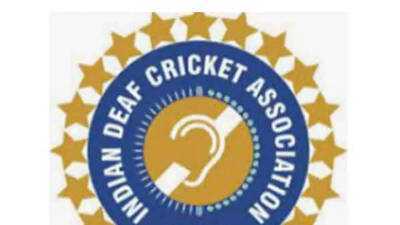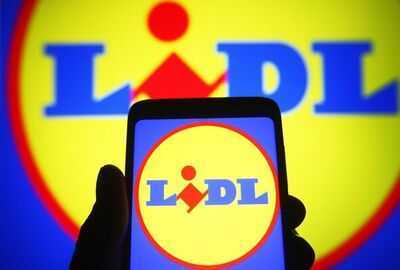Some people with high cholesterol don’t get enough help from lifestyle changes or statin medicines. For them, a new pill might bring hope. A new Phase 3 trial found that a drug called enlicitide, taken daily with regular cholesterol medicines like statins, reduced LDL (“bad”) cholesterol by up to 60% after 24 weeks.
The study compared people taking enlicitide plus their usual cholesterol drugs with others taking a placebo. All participants had high LDL cholesterol and either had past heart problems or were at high risk for one, as per the report by CNN. The results were shown on Saturday at the American Heart Association’s Scientific Sessions, but they are not yet published in a peer-reviewed journal.
Dr. Banka said, “We wanted to show what enlicitide can deliver on top of statins, because we know that 70% of patients that are treated with lipid-lowering therapies still don’t reach their guideline-directed goals”, as per the report by CNN. She added, “The idea is really to show what we can achieve with enlicitide on top of statins.”
The Phase 3 trial involved 2,912 adults from 14 countries between August 2023 and July 2025. The average age was 63 years. All had high cholesterol even after taking statins for at least 30 days. About 97% were taking statins, and 26% were also on another cholesterol drug. They continued these while adding either enlicitide or a placebo.
After 24 weeks, people taking enlicitide saw up to 60% less LDL cholesterol, and the results stayed strong through 52 weeks.
Enlicitide users also had:
Current PCSK9 inhibitors on the market are injectable, but enlicitide would be the first daily oral pill in this class. Newby said, “Whereas enlicitide is an oral medication taken daily. Thus, offering an option in route and frequency of administration that may be preferable to some patients.” Dr. Banka called enlicitide the “first oral PCSK9 inhibitor to complete Phase 3 trials.”
After 4.6 years, the evolocumab group had a 25% lower risk of heart disease deaths, heart attacks, or strokes. Evolocumab is already FDA-approved in the U.S. to lower the risk of heart attack and stroke and can be used with statins for high cholesterol.
Dr. Erin Bohula, lead author of the evolocumab study and Harvard professor, said, “This is the first demonstration of improved cardiovascular outcomes with a PCSK9 inhibitor, or any non-statin, in patients without a previous heart attack or stroke”, as mentioned in the report by CNN. She added, “Our findings suggest that long-term lowering with PCSK9 inhibitors can help to improve cardiovascular morbidity and potentially mortality over time.”
Enlicitide is a new daily pill from Merck that lowers LDL (“bad”) cholesterol by up to 60% in people who don’t respond well to statins.
Q2. Is Enlicitide safer and easier to take than other cholesterol drugs?
Yes, Enlicitide works safely with statins and is the first PCSK9 inhibitor available as an easy-to-take daily pill instead of injections.
The study compared people taking enlicitide plus their usual cholesterol drugs with others taking a placebo. All participants had high LDL cholesterol and either had past heart problems or were at high risk for one, as per the report by CNN. The results were shown on Saturday at the American Heart Association’s Scientific Sessions, but they are not yet published in a peer-reviewed journal.
New cholesterol pill shows strong results
High cholesterol causes plaque buildup in arteries and raises the risk of heart disease, which is the leading cause of death in the U.S. The CDC estimates one person dies every 34 seconds in the U.S. from heart disease. Merck, the company behind enlicitide, plans to apply for FDA approval early next year, said Dr. Puja Banka, associate vice president of clinical research and global clinical development at Merck.Dr. Banka said, “We wanted to show what enlicitide can deliver on top of statins, because we know that 70% of patients that are treated with lipid-lowering therapies still don’t reach their guideline-directed goals”, as per the report by CNN. She added, “The idea is really to show what we can achieve with enlicitide on top of statins.”
The Phase 3 trial involved 2,912 adults from 14 countries between August 2023 and July 2025. The average age was 63 years. All had high cholesterol even after taking statins for at least 30 days. About 97% were taking statins, and 26% were also on another cholesterol drug. They continued these while adding either enlicitide or a placebo.
Enlicitide may become first oral PCSK9 inhibitor
Enlicitide belongs to a class called PCSK9 inhibitors, which help clear LDL cholesterol from the bloodstream. Statins work differently — they block an enzyme in the liver, which then removes more LDL cholesterol. Dr. Kristin Newby, a cardiologist at Duke University, said, “Adding enlicitide that works by a different mechanism to statins could further reduce LDL cholesterol.”After 24 weeks, people taking enlicitide saw up to 60% less LDL cholesterol, and the results stayed strong through 52 weeks.
Enlicitide users also had:
- 53% drop in all other cholesterol except HDL (the “good” kind)
- 50% decrease in ApoB (a fat-carrying protein)
- 28% drop in lipoprotein(a), a type of harmful fat
Safer option and easier to take
Dr. Newby said, “This provides some reasonable assurance of no major or high frequency adverse events or side effects.” She added that bigger studies will still be needed to find rare side effects after approval. Newby also said, “The major benefit that is clear from this study is that enlicitide is very efficacious at lowering LDL cholesterol (by about 55%) compared with placebo on a background of statin therapy.” She added it also helps more people reach their target LDL cholesterol levels than statins alone.Current PCSK9 inhibitors on the market are injectable, but enlicitide would be the first daily oral pill in this class. Newby said, “Whereas enlicitide is an oral medication taken daily. Thus, offering an option in route and frequency of administration that may be preferable to some patients.” Dr. Banka called enlicitide the “first oral PCSK9 inhibitor to complete Phase 3 trials.”
Other cholesterol study also promising
Another study presented at the same event showed that an existing injectable drug, evolocumab (Repatha), also reduces first-time heart attacks and strokes. The Repatha study included 12,257 adults across 33 countries between June 2019 and November 2021, with an average age of 66. One group received evolocumab injections every two weeks, and the other received placebo injections.After 4.6 years, the evolocumab group had a 25% lower risk of heart disease deaths, heart attacks, or strokes. Evolocumab is already FDA-approved in the U.S. to lower the risk of heart attack and stroke and can be used with statins for high cholesterol.
Dr. Erin Bohula, lead author of the evolocumab study and Harvard professor, said, “This is the first demonstration of improved cardiovascular outcomes with a PCSK9 inhibitor, or any non-statin, in patients without a previous heart attack or stroke”, as mentioned in the report by CNN. She added, “Our findings suggest that long-term lowering with PCSK9 inhibitors can help to improve cardiovascular morbidity and potentially mortality over time.”
FAQs
Q1. What is the new cholesterol pill Enlicitide?Enlicitide is a new daily pill from Merck that lowers LDL (“bad”) cholesterol by up to 60% in people who don’t respond well to statins.
Q2. Is Enlicitide safer and easier to take than other cholesterol drugs?
Yes, Enlicitide works safely with statins and is the first PCSK9 inhibitor available as an easy-to-take daily pill instead of injections.








